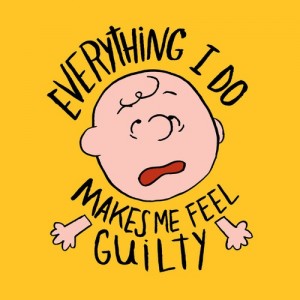When I consider the 40,000+ Americans who commit suicide every year I’m truly overwhelmed. I can’t help but to wonder what was and wasn’t said to these 40,000+ lives. I need to know why these these 40,000+ individuals couldn’t see what waited for them just beyond their despondency. I know it’s easy to judge what’s misunderstood. It’s even easier to bypass what isn’t exactly happening to you, but for those suffering from depression, bipolar disorder, past hurts, heartaches, embarrassment and anger, their feelings are very real.
In my 35 years of life coaching I have seen many clients who were, or are, suicidal. I know the look of defeat. I have seen suicidal clients attempt to disguise their symptoms. I have also seen people in total denial of the war waging within them. I’ve been told by many clients that there is an insidious guilt agitating them for not being happier, and a heavy shame for believing they deserve to be happy. I ask whether or not they were ever told that it’s okay to be sad. I tell them it’s fine if the world weighs too heavy on their hearts, it’s common to want to sleep the day away, and it’s acceptable to cry during moments where you need to be strong. There will be days or even weeks full of melancholy. It’s completely normal to have those moments, but you shouldn’t have to stay there long.
A key trigger that I’ve noticed in all suicidal individuals is hopelessness bigger than the size of Manhattan. This despair infiltrates their thinking, speaking, and all around living. In my experience, their hopelessness is a seed of rejection, failure, disappointment, or addiction that was fed by not speaking up, by not telling someone that this seed existed. Some clients have a white knuckle grip on secrets that would kill them if left unspoken. I want to tell you there is absolutely nothing you can say that will make me judge you. Trying to preserve what’s decaying is far worse than allowing it to rot. Sometimes the only way to put ourselves back together is to let ourselves fall apart. That’s when we begin to see where things really belong, and what never belonged at all.
There is power in speaking. Opening up about the things that are tormenting us keeps our demons at bay. It keeps them from spreading lies about who we are and what we’re worth. I’m familiar enough with my clients to identify when something they’re believing about themselves isn’t true. I help navigate them toward their personal truth, and wait patiently for them to see themselves as worthy of love, forgiveness, a second chance, grace, acceptance, kindness, and abundant life.
I got into this kind of work because I knew the quickest way to help people was to change how they think through Clinical Hypnosis. Today I want you to see yourself as worthy of living a complete life, because you are.





 I work with people that struggle with their overbearing feelings of guilt and shame. Some hold back from making extremely important life decisions out of fear for guilt that has not even taken place. Anything that keeps you from advancing or moving forward in life is something you have to let go of, regardless of the guilt that may or may not take place for having done so. Hypnosis is great for treating guilt prone minds because it diminishes the negative thoughts in your brain and helps you to think more rationally. This is helpful because it will help you to assess whether or not the guilt you’re feeling is necessary. If it is not, you’ll learn to cast the thought away and if it is, you’ll learn to spend less time torturing yourself and more time correcting your error.
I work with people that struggle with their overbearing feelings of guilt and shame. Some hold back from making extremely important life decisions out of fear for guilt that has not even taken place. Anything that keeps you from advancing or moving forward in life is something you have to let go of, regardless of the guilt that may or may not take place for having done so. Hypnosis is great for treating guilt prone minds because it diminishes the negative thoughts in your brain and helps you to think more rationally. This is helpful because it will help you to assess whether or not the guilt you’re feeling is necessary. If it is not, you’ll learn to cast the thought away and if it is, you’ll learn to spend less time torturing yourself and more time correcting your error.


 Life is tough. Add forced holiday cheer and all of life’s complexities suddenly multiply. How can we be thankful when we’re hurting? Here’s some advice.
Life is tough. Add forced holiday cheer and all of life’s complexities suddenly multiply. How can we be thankful when we’re hurting? Here’s some advice.